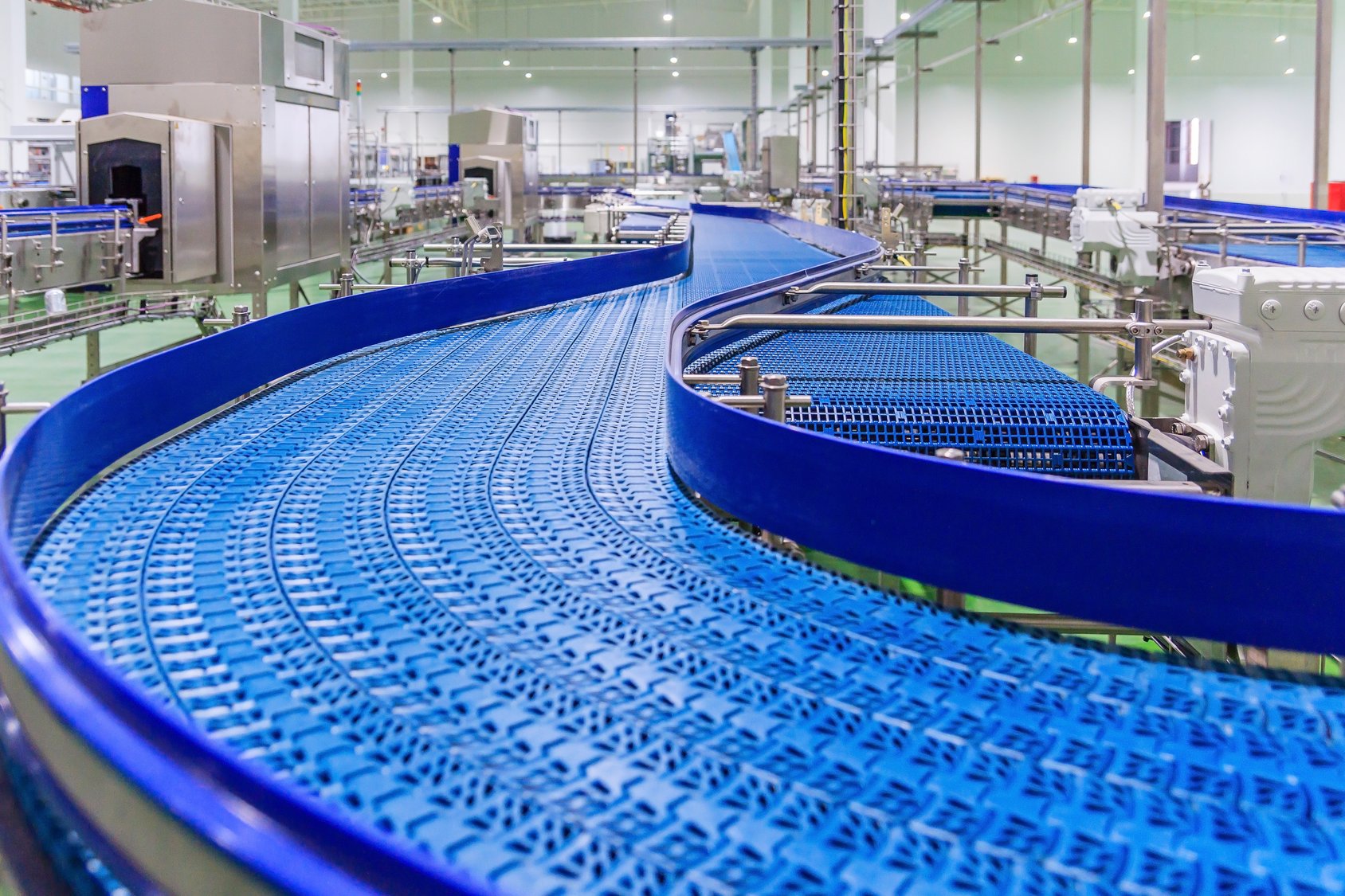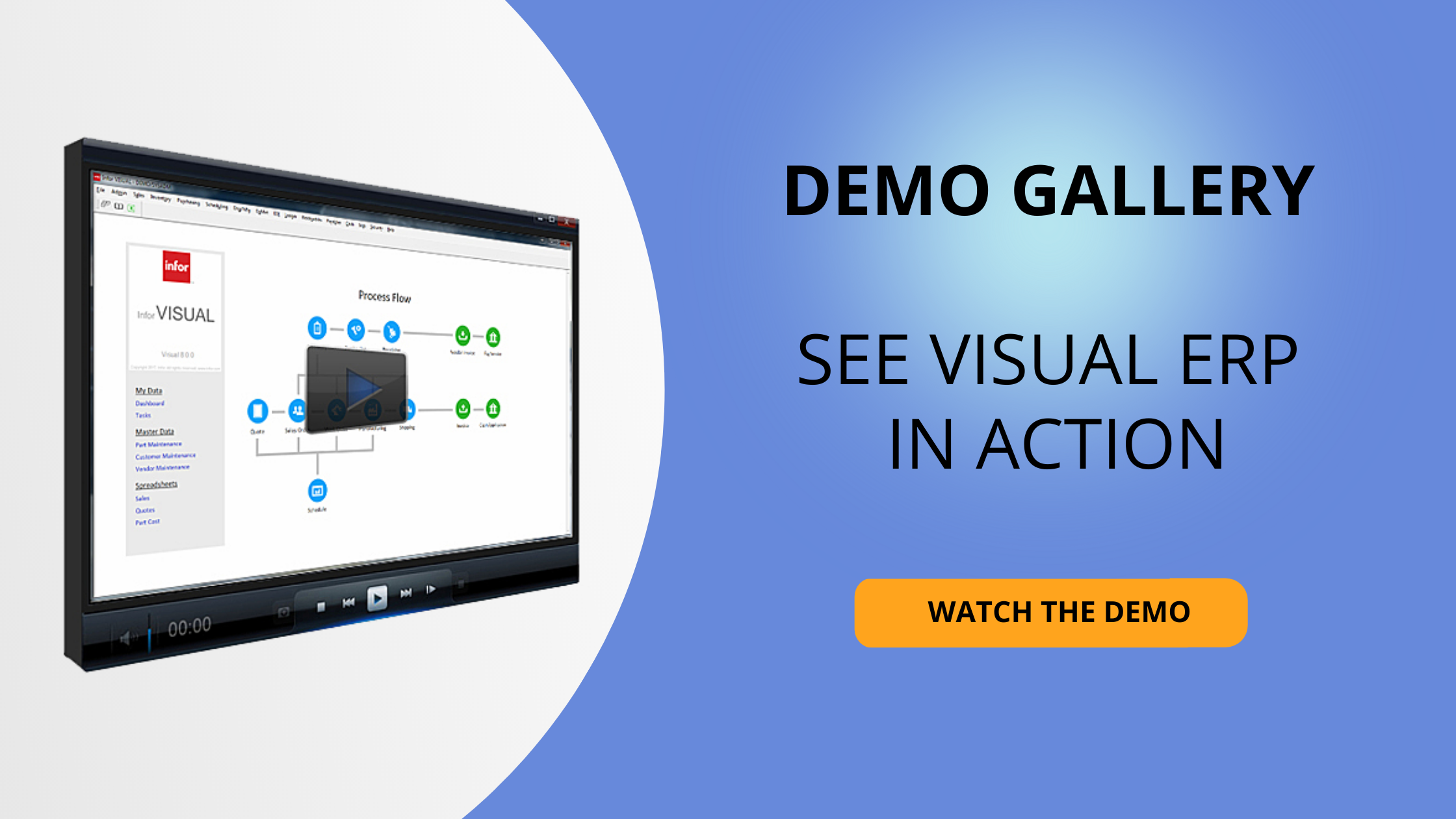Address your business issues
When looking for the best discrete manufacturing ERP software, you need to pick an application that addresses your business issues. Yet we often see the focus of an ERP evaluation shift to matters that do not impact the business. Cool features can distract you from choosing a system that can help discrete manufacturers manage their business better. That’s why you need an ERP Evaluation Checklist—it will help you stay focused on these best practices.
Discrete manufacturing ERP selection best practices
Form an ERP evaluation team to lead the effort. You should not have too many members on the team. Typically, around four stakeholders should suffice, assuming those members are subject matter experts on the complete business processes. If you have too many team members, it gets difficult to schedule meetings, keep the team focused on primary goals, and manage internal politics and conflicts. These team members will also be heavily involved in the implementation part of the project.
The evaluation project manager should gather two lists of requirements, one from the executive team and one from the department heads.
The executive team’s list is necessary to ensure that their short- and long-term vision and goals are addressed with a new ERP. The new ERP project needs executive ownership, and there is no better way to get that than by obtaining requirements from the C-suite and owners of the company. When they are excluded, there are issues with getting final sign-off on purchasing a new system—or the project veers in alternative directions when final approvals are needed.
The evaluation project manager should also get a list of requirements and business goals from department heads, including sales, engineering, procurement, production, material management, quality, accounting, and service. These requirements are typically quite different than their executive counterparts—they are much more tactical in nature. For example, accounting may require the ability to email an invoice in PDF format. That is important for the billing unit, but it is much different than the president wanting to grow sales by five percent year over year while only growing headcount by two percent. The executive will be more interested in strategic goals such growing revenue, introducing new more competitive product lines, ability to do what if analysis on if additional production assets are needed, or consolidation of activities across multiple sites.
Once you have assembled requirements and goals from across the company, you need to prioritize them. Define what you critically need to help your discrete manufacturing business achieve its executive goals, while also addressing departmental requirements. When this is complete, you have a foundation in place to qualify varying discrete manufacturing-focused ERP providers.
The next step is to create a short list of vendors—no more than four. Otherwise, it will be very noisy due to the numerous calls, discovery sessions, demonstrations, implementation reviews and scoping, software licensing specification discussions and pricing, and final negotiations. The sheer number of activities taking place during an evaluation can make it overwhelming for the evaluation team from a content, attention, and time perspective. In short, it can be arduous.
Areas of focus for discrete manufacturers
The next step in the ERP evaluation process is to effectively manage the product demonstrations. A few primary areas to investigate in a discrete manufacturing ERP system are visibility of orders and managing customer expectations, engineering, planning and scheduling, and job costing. Those areas are typically pillars of a discrete manufacturing operation.
Discrete manufacturing companies are often categorized as “to order” manufacturers, with mixed mode components when there is a make-to-stock or forecast demand to be addressed.
Discrete manufacturers often have diverse types of “to order” modes. It is common to see one part of the business fall in the configure-to-order category while another area is engineer-to-order. This manufacturer may even have some component parts that are internally fabricated to stock based on a historical forecast. That is why a comprehensive discrete manufacturing system is particularly important—it addresses these production modes.
Examples of discrete manufacturing types include:
- Make-to-order
- Engineer-to-order
- Configure-to-order
- Assemble-to-order
- Build to stock/forecast
Engineering
You need a discrete production system that can handle the varying engineering processes involved with a product configurator, integrate with CAD systems, or use similar templates and copy and change as needed to create intricate engineering masters. Your discrete manufacturing ERP system should be able to support these engineering methods.
Planning & Scheduling
The discrete manufacturing process requires a very sophisticated Planning and Scheduling (APS) toolset to take the mix of configure-to-order, engineer-to-order, assemble-to-order, and make-to-order products. It also needs to drive correct purchasing requirements tied in with managing capacity for scheduling work orders. This is no small task for an ERP system in a larger organization, which needs to provide guidance for planners that create and manage hundreds of purchase orders and open work orders per day.
Materials Management
Managing materials is critical and often overlooked when evaluating toolsets for discrete manufacturers. Proper visibility of inventory counts, and valuation is critical for maintaining optimum inventory levels. This can be a tedious balance, as purchasing agents need to ensure appropriate supply levels without tying up too much capital in production inventory. Planning tools are critical for managing the mix of forecasted items, opportunities in the sales pipeline, and real demand.
Production Scheduling
Widely accepted ERP applications like Infor CloudSuite Industrial/SyteLine provide an APS toolset that helps optimize material requirements while scheduling work orders (whether backward finite or infinite). This application also offers Capable to Promise (CTP) for sales, “what if” scheduling, and numerous capacity management scheduling tools for the production scheduling team.
Another thing to ensure is that it is not a third-party system. If the ERP needs to use a third-party scheduling tool, then they are not serious about addressing discrete manufacturing needs. Understand how the scheduling tools look at material availability and lead times and matches that up with available capacity to schedule jobs. Scheduling production and having proper material requirements are both critical to successfully running a discrete manufacturing company.
Costing
Make sure you have flexibility with relation to costing methods. Typically, discrete manufacturers use actual costing since jobs are not repetitive. Due to the discrete manufacturing mode, there are many different materials and operations used due to the orders more specific to the customer needs, and the ERP system needs an infrastructure for designating and capturing costs. It’s important to understand what is provided, because having true and trusted costs are an integral part of a properly operating discrete manufacturing facility.
Shop Floor Execution
Finally, discrete manufacturers need a modern shop floor execution system. This final supporting infrastructure needs to track material moves and issues, capture labor costs, count finished quantities, capture scrap, notify the scheduling system that work has been completed, and do quality inspections. Infor Factory Track provides all these functional requirements. It’s also a mobile and modern web-based application, which is often a requirement for discrete manufacturers adopting Industry 4.0 standards.
Summary
Maintain focus when selecting a discrete manufacturing ERP system. It takes time, and you must follow a process and stay within those process lanes. Evaluate the systems based on your needs, not the areas your sales team is focused on. Keep your team focused on the overall goals as defined by the executive team while also meeting the needs of the departments.
Visual South has been involved in hundreds of ERP evaluation projects. We have many documents that can help you, including a guide to selecting ERP software. If you would like to discuss what you have in mind and get feedback, register for a free assessment. Our team is happy to help provide guidance on best practices for selecting and implementing a new discrete manufacturing ERP system.









